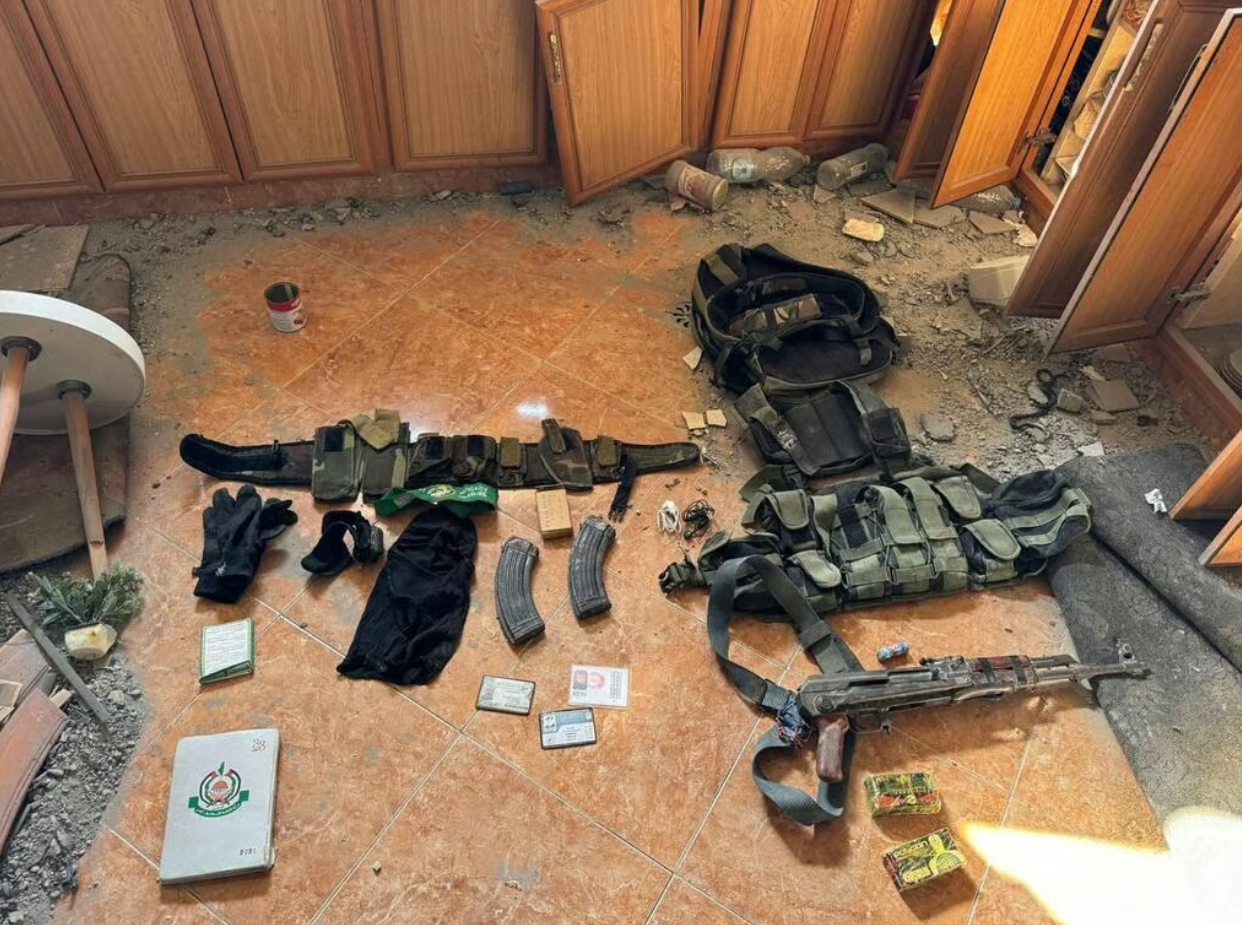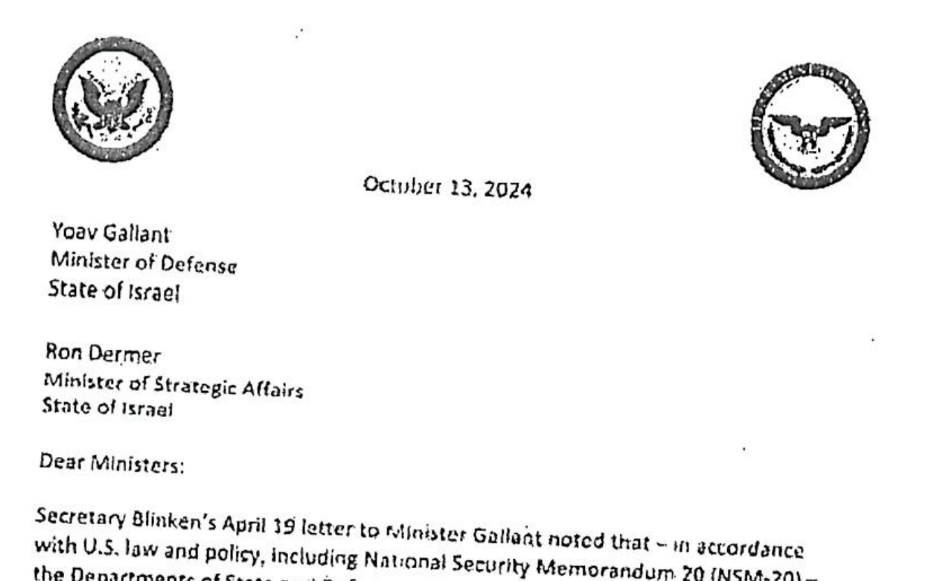*Cover photo: AI image for illustrative purposes only
UNRWA is the United Nations agency responsible for providing aid to Palestinians. The UN agency has also been exposed as supporting Hamas, teaching Nazi ideology to Palestinian children, and even participating in the October 7 massacre. Indeed, after his assassination by Israeli forces, Hamas chief and October 7 mastermind Yahia Sinwar was found with cash, weapons, and (wait for it…) an UNRWA ID card. It therefore came as no surprise when, yesterday, the Israeli Knesset passed a law banning the UNRWA organization in Israel. Yet a proper legal analysis shows that, aside from some short term virtue signaling, the new Israeli law is unlikely to have any impact at all. Here’s what you need to know.

Photo: Items found on Hamas chief Yahia Sinwar. Credit: IDF
Under Israel’s new law, UNRWA is not permitted to “operate any institution, provide any service, or conduct any activity, whether directly or indirectly,” in the sovereign territory of Israel. However, by Israeli law, neither Gaza nor Judea/Samaria (the “West Bank”) are Israeli “sovereign territory” and for good reason.
In order to become sovereign territory, Israel must perform a legal act called “annexation.” For example, in 1967 Israel annexed the eastern portion of Jerusalem, and 1981 did the same with respect to the Golan Heights. Israelis have at times debated whether to annex parts of Gaza and Judea/Samaria, but Israel has never actually done so, because, among other things, this would likely end Israel’s existence as a Jewish state.
Under both international law and Israel’s own citizenship laws, Israel is required to offer full citizenship to all people living in an annexed area, regardless of religion, ethnicity or national origin, and indeed, Israel has done so in both Jerusalem and the Golan Heights. To do otherwise would effectively create multiple classes of citizens with different rights, an anathema to most Israelis as well as to any true democracy. Accordingly, to annex Judea/Samaria and Gaza as sovereign Israeli territory would mean adding millions of voting citizens to Israel’s democratic system.
But how many?
The Palestinian population of the West Bank and Gaza stands at 5.5 Million, while the Muslim population within Israel is approximately 2 Million, for a total of 7.5 Million: more than the Jewish population, which is 7.1 Million. After including Christians and other ethnicities, Jews would become an even smaller minority of total voters, and by the next election, Israel would cease to be a Jewish state at all. Some question whether Palestinian population figures are exaggerated, but even if Israeli Jews were to somehow maintain a slim voting majority, Israel’s character as both democratic and also Jewish would be in constant jeopardy, and unlikely to last long term.
In short, most of the areas where UNRWA operates are not Israeli “sovereign territory” according to Israeli law, and therefore not covered by the new anti-UNRWA law. Under this new law, UNRWA will therefore continue to operate in Gaza and Judea/Samaria, and in all likelihood, will continue its involvement in terror activities against Israelis.
Though the new law will likely be ineffective at curbing UNRWA’s terror activities, it will be quite effective at creating new international problems for Israel.
UN Secretary General Antonio Guterres stated that the new Israeli law will be “devastating” for Palestinian civilians, a view that is echoed by much of the international community. Guterres’s statement is based on the patently false claim that there is “no alternative” to UNRWA. In fact, there are multiple channels for delivering humanitarian aid, including other (potentially less corrupted) UN agencies, such as UNHCR, or UNICEF, as well as governments and private contractors. Furthermore, the opinion of the United Nations holds little credibility for most Israelis in the wake of the international body’s support for Hamas terrorism and its direct participation in the October 7 massacre (via its UNRWA agency). Nonetheless, the widespread (albeit inaccurate) view that Israeli actions are “devastating” does influence other parties that are relevant to Israel, including the United States.
The Biden administration sent a strongly worded letter to Israel on October 13, effectively threatening an arms embargo unless Israel takes certain actions within thirty days: one of the demands was that Israel not pass any laws against UNRWA — exactly what Israel has just done. The American letter points to U.S. National Security Memorandum 20 and Section 620i of the U.S. Foreign Assistance Act, both of which are essentially mechanisms for cutting off foreign aid from U.S. allies: a not-so-subtle threat to abandon Israel’s critical self-defense, in order to protect the close partner of a terror organization.

Photo: Leaked letter from the United States to Israel from October 13. Credit: Axios.
What would be effective?
The Knesset introduced a bill last July to declare UNRWA a designated terror organization under Israeli law. Such a designation would allow Israel a variety of legal and security tools that could curb UNRWA’s harmful activities in a meaningful way. However, not only would passing such a law put Israel on a collision course with its key allies, but enforcement could result in Israel arresting, prosecuting, and potentially even engaging in combat with a U.N. agency.
Ultimately the problem Israel faces is bigger than UNRWA – it is that the Western world is engaging in widespread appeasement of terror organizations and their patrons. Until this reality changes, the tools available to Israel to protect its citizens from terrorism will remain tragically, and dangerously, limited.


